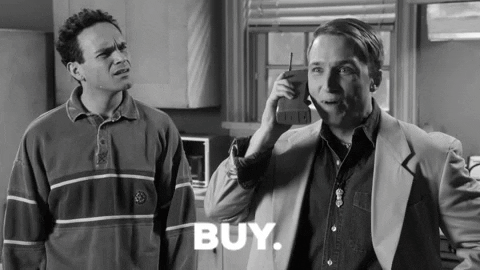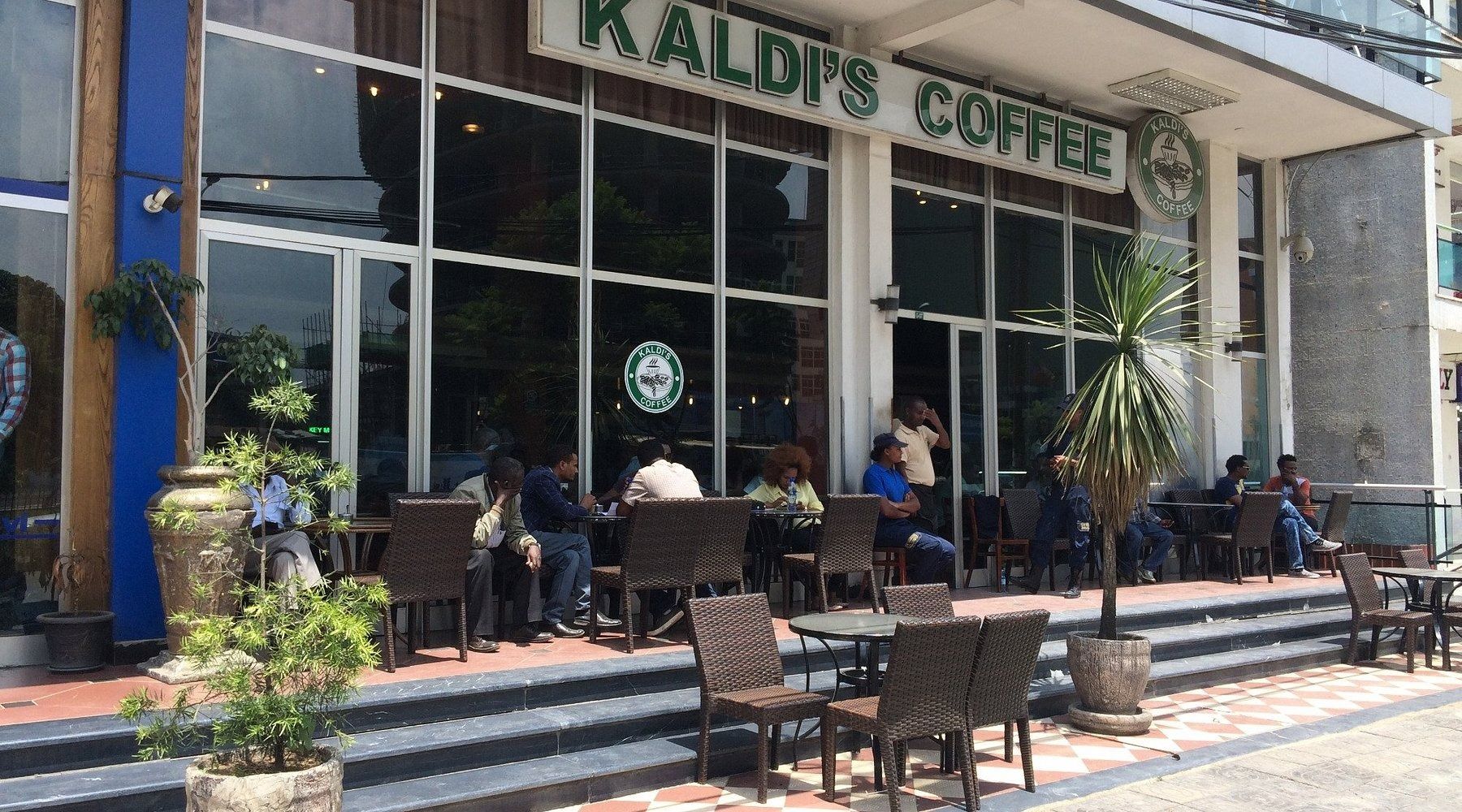- ፍራንክ Digest
- Posts
- Ethiopia: Meet Private Equity 🫡
Ethiopia: Meet Private Equity 🫡
PLUS: You deserve a Loyalty Program
Welcome to the 79th edition of ፍራንክ Digest!
Your weekly brief on all things Finance and Investing. Quick, enjoyable reads for busy professionals in 5 minutes or less.
Here’s what’s coming your way:
🤙 “PE is where it’s at bro!”
🏷️ Paying with Loyalty
🖼️ Big Picture
Thanks for reading!
Hi there…I’d like a slice of your business, please

Investing
Is what you might say once you let uncle ፍራንክ of the Digest family explain Private Equity to you.
Well gather up boys and girls because your weekly dose of financial knowledge is upon us. Here is the thing: businesses are like any other asset, they have owners and they can change hands.
In Ethiopia, that practice is almost non-existent and that’s why Private Equity (PE) will sound like a foreign concept to many.
The term is composed of two words ‘Private’, meaning no public investment and ‘Equity’ the stake in a business.
PE is an investment vehicle that seems to attract the sharpest and the brightest to invest in so called ‘rough diamond’ businesses. Somewhere in between Venture Capital (Where investors throw their money at early stage startups) and Hedge Funds (pool of deep pocket or institutional investors gathering their war chest to deploy it on liquid but speculative bets, essentially hedging for the market).
To make this quasi opaque world a bit clearer, let’s use an example closer to home: Kaldi’s Coffee, Ethiopia’s first casual coffee chain. No longer the staple name that we all know so it's perfect for our case here.

Source: Tripadvisor - Old Kaldi’s Location on Bole Road
On the other hand, our imaginary PE firm, let’s call it Abu Walad Capital, is just starting out.
Where do we start? Kaldi’s is in decline and Abu Walad is hunting for a gazelle 🦌 in the prairie
Step 1: Assemble the dough 💵
Abu Walad goes on a funding campaign to pull cash from different sources. Pension funds, insurance companies, high net worth individuals and in some cases sovereign funds, as well.
Step 2: Target 🎯
Identify which company is underperforming and undervalued. Buy it and restructure the organization to sell it back in 5-10 years time (Kaldi’s hint hint 👀)
Step 3: Let the dough rise 🙋♂️
Approach the board and management. Make an offer to buy out current shareholders. Discussions will be tough but when a company is not operating at its potential, arguments can be quickly convincing.
Step 4: Don’t use all of your money 🏦
Ironically, the people who have money also borrow money. That’s a fact and PE is no different. They put up the business's assets as collateral a.k.a leverage and borrow up to 90% of the purchase price (debt). With 10% coming from the fund (equity). Clever, right?
Step 5: Time to bake 🤝
Deal agreed. Kaldi’s is sold to the PE firm, existing management stays put during the transitional phase and upskilled or replaced. Revenue rises and costs are reduced leading to better profit margins. Likely actions taken include closing underperforming stores, high margin products aggressively promoted and debt restructuring gets underway.
Step 6: Years 5 to 10, time to sell👍
Assuming that the PE firm has turned around the business and Kaldi’s is rubbing shoulders with the likes of Koba and Gateau, Abu Walad Capital will now look for a new home for it (Probably another PE firm or a competitor)
Step 7: Serving the cake! 🎉
Abu Walad makes the sale. Kaldi’s is now under new management and the investors are paid handsomely. The financial management magic worked.
All is well. And that is how you do a transaction as a PE firm. Pretty straight forward, right? You can probably read the sarcastic tone between the lines.
Indeed, the steps are straightforward, but the journey is not…and this is true to all types of investments. Shareholder battles, purchase price disagreements, management proxy fights, large sums of debt are some of the obstacles that make PE deals difficult to conduct.
Toys R Us [Bankruptcy declared after $6.6B investment]
Red Lobster [Bankruptcy declared after $2.1B investment]
Hertz [Bankruptcy protection years after a $14.8B investment]
Are proof that PE is not always the answer while
Skype [$8.5B from a $1.9B investment]
Hilton Hotel [$14B profit from a $26B investment]
Idealista [$2.9B from a $1.3B investment]
Can prove the other side of the argument which is efficient operation, better management, better business model and a concrete strategic outlook will have a mutually beneficial outcome.
What you notice is that these are all western deals, America, Europe, Asia and so on. Africa is not often mentioned in the Private Equity realm and that’s a shame. Zooming in even closer, Ethiopia is nowhere near the PE discussion.
The sole actor in this space is Cepheus Capital, a PE firm that raised money from the US (First round was around $100M). Their portfolio is solid but no exits have been reported yet.
Locally funded PE firms are hard to come by since the legal framework to do the fund raising and financial engineering that PE firms are so good at isn’t very straightforward. However, with capital markets settling in and pension funds being able to invest in equity, this might change.
‘So ምን እያላቹን ነው ታድያ ሰዎች?’
Well we always tell you how it is and the fact of the matter is that Ethiopia’s financial sector is still playing catch up to global best practices. Ethiopian financial restaurants are still serving ቦምቦሊኖ instead of Dubai Chocolate. But do we still eat at the same restaurant? You bet your sweet bottom we do. Because, what’s the alternative?
PE will be another chapter for the country, just like the Capital Markets, the industry will announce itself, but for now, we can stick to the menu.
Big Picture
Kaldi’s has a new buyer after our fictitious PE firm adopted it, nursed it back to health and gave it away to a better suited family. Or so our fairytale goes.
Private Equity is not your typical investment vehicle: it’s risky, hard to invest in, requires a lot of ruthlessness and when all things are said and done, finding a buyer will still be a challenge.
Private Equity requires extensive due diligence with a disciplined asset allocation plan. Ethiopia still has a long way to go when it comes to welcoming PE into its heart but examples like Kaldi’s fictitious purchase and sale can paint a clearer picture of what the potential for the industry could be.
Catch us next week as we explore why YOU should buy or sell a business instead of waiting for PE firms to make a move.
ፍራንክ Picks
🗞️ In the news: “It’s nothing personal…just business” - NBE
♟️ Innovation: Dantel crocket’s its way into the eCommerce battlefield
Loyalty Programs: The Overdue Investment From Ethiopian Businesses

Investing
A good friend of Frank Digest noticed something:
“For the amount of coffee that I buy from this place, I should be given a brand new EV with a red bow on it. Where supermodels are lined up on each side with me struggling to hold the giant symbolic car key, giving the cameras the biggest grin on my face. But that’s probably just me, living in my own little world.
3 years on from my first visit to the establishment, my biggest compensation has been a ‘Good to see you again…የተለመደውን?’ I often ask myself, am I being an ungrateful coffee addict that wants more from this relationship?
Perhaps. But hey, relationships grow, why can’t this one too? ”
And that got us thinking, it’s true that most Ethiopian businesses don't reward their loyal customers. Unless the owner is in a good mood and offers the occasional ‘በእኔ ግብዣ’.
But it’s not just cafes or restaurants…its beauty shops, car washes, laundries…all of these places we frequently visit. And if we like them, we stick with them. It could be:
💁♀️ The service
🥡 The product
📌 The location
Or just simply because they meet our price point
As customers, we are in essence spoiled brats sometimes but we do want to feel good whenever we go somewhere to spend money, a little sense of entitlement perhaps, but maybe businesses can tap into that.
The most prime example is Ethiopian Airlines.
They offer Sheba Miles, their version of a loyalty program. The more you fly, the more ‘miles’ you accumulate (kilometers would be more appropriate but hey we don’t make up the rules 🤷♂️). Miles are categorized by tiers, higher tiers symbolize higher mileage points. Points can be redeemed for airplane tickets, lounge access, amenities and even accommodation.
Sheba Miles is not the most appealing loyalty program especially if you don’t fly a lot. But for someone who drinks coffee, getting a croissant on the 6th or 7th visit might trigger a psychological light bulb - Hey, they’re thinking of me. How nice!
As customers, we would love that. After all, free stuff for coming back and spending is a no brainer. That feeling of being taken care of is what a relationship is all about.
Treat them even better and they’re going to introduce your business to their friends and family, potentially spending even more.
Data shows that businesses with a successful loyalty program see a 15-25% growth from repeat businesses. With 66% of customers claiming that the ability to earn rewards changes their spending behavior.
As a business, investing in these programs is a no brainer. The biggest factor is having a good ROI (Return on Investment). How much can you give away and still have a long term profit? What does 25% OFF today translate to when it comes to tomorrow’s profits?
The Ethiopian context might be a bit too out of reach with business costs uncontrollably fluctuating all the time but PassKit’s guide can give you some perspective.
Perhaps, next time you go to your usual dry cleaner, you might see a QR code with a big ‘Join and get 50% OFF’ tag line on the counter.
What’s better than picking up clean cloth? A big fat discount.
Frank’s Take
→ It’s never a bad idea to implement a Loyalty Program if you’re a business. Customers always recognize the effort that you’re putting in. That effort will be rewarded in the long run, if the accounting checks out, of course.
→ We always talk about investing, this article is a way of putting the investment hat on as a business owner
→ Companies like Feres, Ride, Deliver Addis, Fresh Corner all run loyalty programs…the experience is a mixed one, both on the business and customer side. Great marketing is always the key ingredient. The lack of is usually cause for the program to fail. Without it, loyalty programs become hyped up concerts without fans.
Thanks for sticking with us, ፍራንክ family! Keep those wallets smart and your inbox open - we’ll be sliding in next week!
Reply